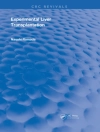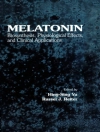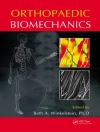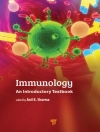<p><strong>The one-stop resource on deep brain stimulation for functional neurosurgeons!</strong></p><p>Deep brain stimulation (DBS) is used to modulate dysfunctional circuits in the brain with stimulation pulses applied to specific target areas of the brain. Globally, DBS procedures have been most commonly performed for Parkinson’s disease and essential tremor, but there are now new and growing research efforts studying DBS for psychiatric disorders and epilepsy.</p><p><cite>Deep Brain Stimulation: Techniques and Practices</cite> written by the Society for Innovative Neuroscience in Neurosurgery along with Dr. William S. Anderson and distinguished experts presents the latest DBS approaches. The book begins with a history of DBS, general frame-based techniques, patient selection primarily for movement disorders, multidisciplinary collaboration, and ethical considerations. Subsequent chapters detail diverse technologies and disease-specific treatment for Parkinson’s disease, essential tremor, dystonia, OCD, epilepsy, major depression, Tourette syndrome, emerging psychiatric indications, and pediatric applications.</p><p><strong>Key highlights</strong><ul><li>Lead placement techniques utilizing currently available customized platforms and robotics</li><li>Microelectrode recording and image-based direct targeting with MRI and CT to enhance lead placement</li><li>Lesioning methods including radiofrequency, and MR-guided focused ultrasound</li><li>Discussion of recent innovations in tractography to delineate white matter tracts in the brain and closed loop stimulation</li></ul></p><p>DBS has helped thousands of patients with intractable conditions, allowing for a programmable therapy with durable treatment effect. This remarkable guide provides the essentials for functional neurosurgeons to pursue intraoperative research opportunities in this growing subspecialty and incorporate DBS into clinical practice.</p><p>This book includes complimentary access to a digital copy o
Spis treści
<p>Chapter 1: Introduction to Deep Brain Stimulation: History, Techniques, and Ethical Considerations<br>Chapter 2: Customized Platform-Based Stereotactic DBS Lead Placement Technique (FHC STar Fix, Medtronic Nexframe, and Robotic System Placement)<br>Chapter 3: Microelectrode Recording Methods<br>Chapter 4: Intraoperative Imaging-Based Lead Implantation<br>Chapter 5: Lesioning Methods for Movement Disorders<br>Chapter 6: Computational Modeling and Tractography for DBS Targeting<br>Chapter 7: Closed-Loop Stimulation Methods: Current Practice and Future Promise<br>Chapter 8: Parkinson’s Disease Application<br>Chapter 9: Essential Tremor Application<br>Chapter 10: Deep Brain Stimulation for Dystonia—Clinical Review and Surgical Considerations<br>Chapter 11: Deep Brain Stimulation for Obsessive Compulsive Disorder<br>Chapter 12: Deep Brain Stimulation in Epilepsy<br>Chapter 13: Deep Brain Stimulation in Major Depression<br>Chapter 14: Deep Brain Stimulation in Tourette Syndrome<br>Chapter 15: Deep Brain Stimulation for Emerging Psychiatric Indications<br>Chapter 16: Intraoperative Research during Deep Brain Stimulation Surgery<br>Chapter 17: Deep Brain Stimulation: Techniques and Practice for Pediatrics Indications<br>Chapter 18: Establishing a Deep Brain Stimulation Practice</p>












